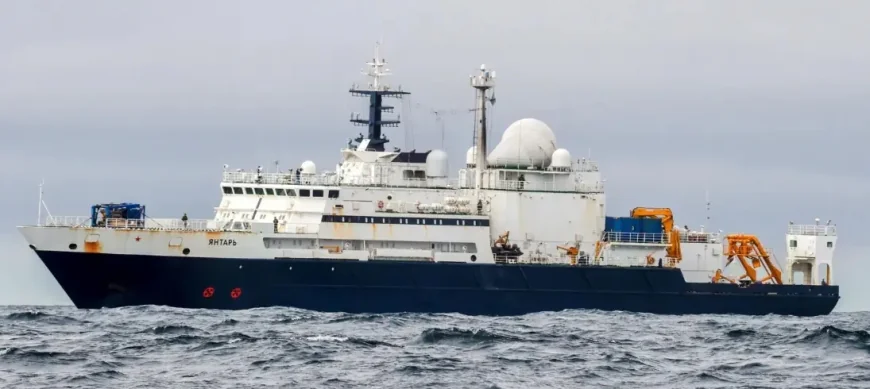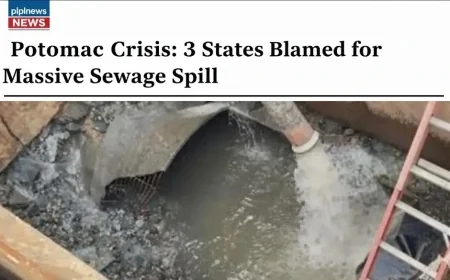The Defence Secretary has said that a Russian spy ship in British waters has used lasers for the first time to disrupt RAF pilots monitoring its movements.
John Healey said at a Downing Street press conference that the government is taking this "extremely dangerous" action "extremely seriously."
He further explained that the ship, named Yantar, was north of Scotland and had entered British waters in the past few weeks, for the second time this year.
Healey told reporters that the ship was "designed to gather intelligence and map our undersea cables."
He added, "My message to Russia and Putin is this: we are watching you. We know what you are doing. And if Yantar heads south this week, we are ready."
Giving more details about the ship, Healey said: "It's part of the Russian fleet designed to threaten our maritime infrastructure and that of our allies.
"This isn't just a naval operation. It's part of a Russian program called the Main Directorate of Deep-Sea Research, or GUGI, and it's designed with capabilities that can conduct surveillance in peacetime and sabotage during conflict.
"That's why we're determined, whenever Yantar enters British waters, we'll detect it, intercept it, and tell Putin we're ready, and we'll do so in conjunction with allies."
He said it was a demonstration of Britain's capability and "readiness for action."
The Defense Secretary issued a warning about the ship in January after it was spotted in British waters.
At a Downing Street press conference, he said it was the first time Yantar had used lasers in an attempt to "disrupt" RAF pilots, which he described as "extremely dangerous" and that Britain took "very seriously."
He said he had changed the Royal Navy's rules of engagement so it could monitor Yantar more closely "when it is in our waters."
He said, "If Yantar changes its course, we have military options ready. I won't disclose them because that would make President Putin more sensible."
Britain and its NATO allies are concerned about the threat posed by Russia to offshore cables, pipelines, and other infrastructure vital to internet connectivity.
In his speech, the Defense Secretary warned about Russian incursions into NATO airspace, as well as threats posed by China and armed conflicts around the world, saying: "Our world is changing. It is less predictable. It is more dangerous."
The Ministry of Defence has come under criticism from a committee of MPs for being overly dependent on US defence resources and unprepared to defend Britain and its overseas territories from military attack.
The committee said Britain and its European allies should build up their capabilities to prepare for a possible US withdrawal.
Healey said the British government holds a "different view" from the committee regarding the US commitment to NATO.
He told reporters, "NATO's strength is not limited to the defence of Europe, but also to the defence of the US."
But he said the committee was "right" to say that Britain should "accelerate its commitment," and that the Labour Party has been doing so since coming to power last year.
Defence talks continue
The report comes as British negotiators are trying to agree a deal with the European Union to allow British defence companies to contribute to projects funded by a new 150 billion euro (130 billion pound) EU defence loan scheme, which begins next year.
The Labour government wants to reach an agreement in the coming weeks to allow British companies to participate in the first round of bids from EU countries, for which applications must be submitted by the end of this month.
Healey told reporters that Britain wants to be part of the program, but not "at any price," as there are reports that the two sides disagree on the entry fee Britain can charge British companies to participate.
He said any financial contribution to participation must be "good value for money for our taxpayers and our industry."

 Like
1
Like
1
 Dislike
0
Dislike
0
 Love
0
Love
0
 Funny
0
Funny
0
 Angry
0
Angry
0
 Sad
0
Sad
0
 Wow
0
Wow
0












































